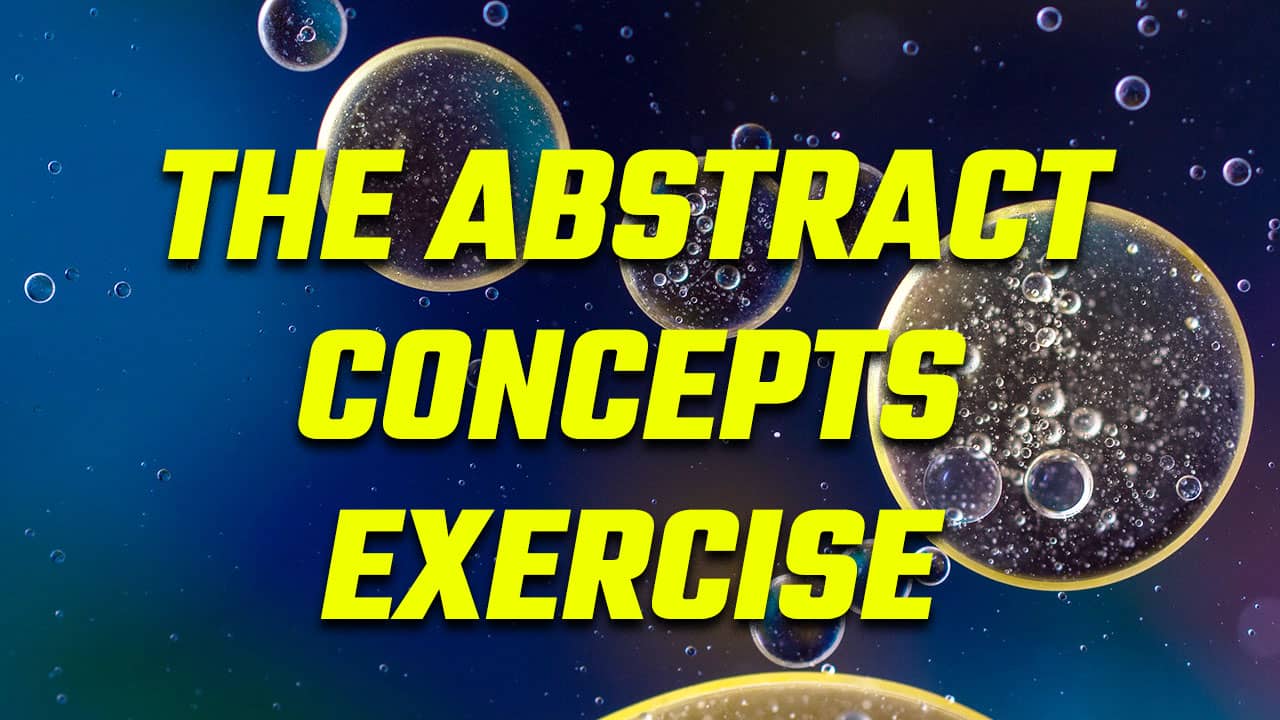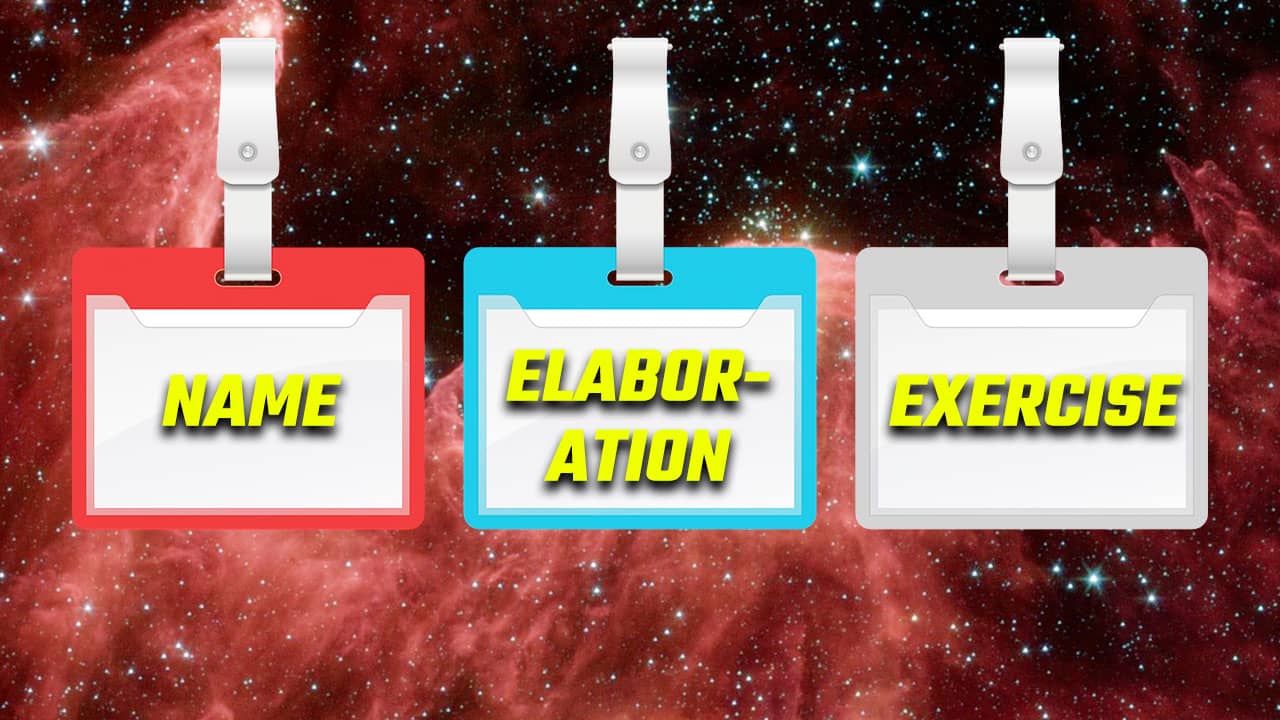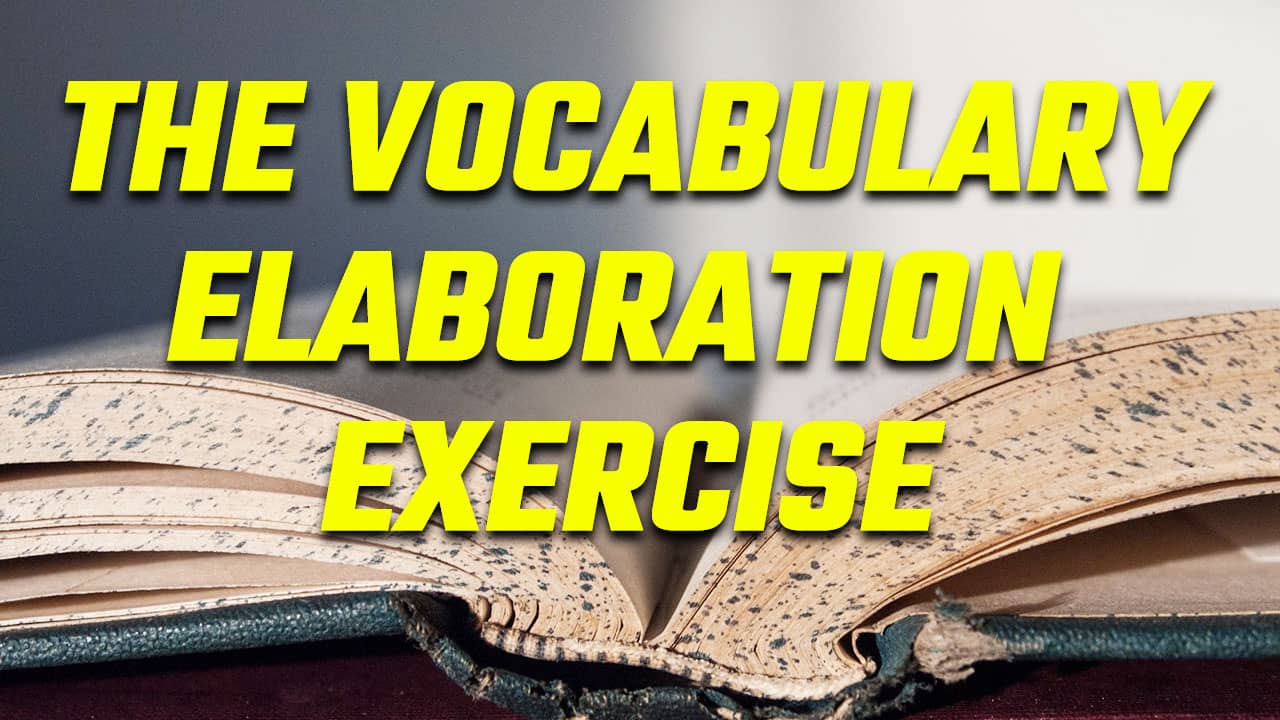Podcast: Download
Subscribe: Apple Podcasts | RSS
 Elaborative encoding isn’t the sexiest term memory science has come up with, is it?
Elaborative encoding isn’t the sexiest term memory science has come up with, is it?
No, but it sure is fantastic when it plays out in real life.
After all, use this memory technique well, and you can memorize a dozen names (or more) at any meeting or party.
Not to mention several dozen details about:
- Occupations
- Hobbies
- Relationship statuses
- Locations
- Educational and professional backgrounds
- … and much, much more!
Imagine being able to remember so much about all the people you meet… within seconds of hearing the details.
Wouldn’t that be a great skill to have?
(If you don’t think so, I’d love to hear why not in the comment section below!)
The best part (when you have these skills)?
You’ll have it all perfectly organized and reachable in your mind. These details will have literally gone from short term memory to long term memory within seconds.
Don’t Fear Memory Science!
Now, I realize that a lot of people hear the scientific terms for how memory techniques work and are immediately turned off.
If that’s you, here’s the blunt truth:
You’re missing out on a huge opportunity to improve your memory by understanding more about how and why it works.
And even though a term like “elaborative encoding” sounds complicated, it is actually:
- Simpler than you might think
- Something you’re doing already …
- And always beneficial to practice so you get better over time
To help you out, I’ve designed three memory-boosting elaborative encoding exercises.
But first, you’ll be best served by understanding exactly what elaborative encoding is.

What is “Elaborative Encoding”?
Defining elaborative encoding is elementary! Yes, really!
And it’s not so much a thing, as it is a thing you do when using memory techniques.
This simple mental task starts with linking information that you want to remember with existing knowledge.
For example:
There’s a guy named Hunter at Burger Project (in Brisbane) where I go to get grass fed beef burgers (no bun).
I memorized his name almost automatically because I linked the information, Hunter’s name, with information I already know about hunters.
And I put several layers of that information together within seconds of hearing his name. I linked him to a camouflage-clad man with a gun, and not a generic one. Rather, I used my favorite Looney Tunes hunter, Elmer Fudd.

At the same time, I put that old plastic gun from the Nintendo game Duck Hunt in Hunter’s hand. (Not in reality, but in my imagination.)
By taking his name and associating it with Elmer Fudd and then going one step further and adding Duck Hunt, I was elaborating my mental imagery. In addition to thinking about what all of this looked like, I also:
- Heard the sound of a duck-hunting gun and Elmer Fudd’s voice
- Felt the Nintendo gun in my hand
- Imagined the smell of gun smoke
- Imagined the taste of roasted duck
In each case, I made the image weird, larger than life and filled it with vibrant action. Hunter literally shot Elmer Fudd before I started eating him as if he were a duck.
All combined, these layers of elaboration made the name Hunter even more memorable. This process only took a few seconds, and I’ve never forgotten his name since.
What Else Can This Style of Mnemonic Elaboration Be Used For?
Not, you may think that this all sounds fine and dandy for names. But here’s the thing:
Elaborative encoding can be applied to any knowledge.
If you can take that knowledge, make associations and manipulate size, color, speed, duration, distance, mood, emotion, and space… you can memorize anything.
When can elaborative encoding be used?
Any time.
But in the beginning, just focus on the keywords related to the information you want added to your knowledgebase.
From there, you can branch out to more challenging memory tasks, like memorizing scripture.
Otherwise, you’re creating more work for yourself before you have the needed skill set. Why put the cart ahead of the horse?
The Main Tools of Elaborative Encoding
Elaborative encoding is both semantic and echoic.
Semantic encoding has to do with the structure, and oftentimes, meaning of information.
For example, in learning the letters of the alphabet, you probably didn’t start with the letter Q.
Instead, you learned your A, B, Cs through song, in alphabetical order (a structure).
You concentrated on each letter individually as you learned the sound each letter makes.
Later, you learned how to recognize them when written, and how to write them yourself.
The Magisterial Role Of Mental “Free” Association
To take another example, if I say the word “red,” you might picture a stop sign, firetruck, or big, juicy apple. You associate red with its meaning, with examples of that color in the world. This is an element of elaborative encoding.
But that’s not all …
Elaborative encoding can also be echoic, or relating to sound.
It can be the literal interpretation or imitation of sounds, such as onomatopoeia:
A frog croaks, bees buzz, cats meow, and horses neigh.
These sounds are familiar and engrained, so that when we hear a “woof,” we instantly picture a dog.
All of these connections are already in your brain. That’s what makes it so easy to use them along with the classic memory techniques.
Sound like “free” creativity?
It is. The only cost is being human.
What Else Can You Elaborate? …
You don’t have to stop with elaborating your mental imagery. You can also…
Elaborate organization itself.
Look:
Memory Palaces are the go-to tool of most mnemonists. They are in essence the palette upon which we “paint” our elaborative encoding.
Other tools include the alphabet image list of the pegword method, as well as the 00-99 PAO List.
These organizational tools, powerful on their own, can be multiplied by using them in combination with each other. Think of them as elaboration inside of elaboration.
I help you further here:
Elaborate your state.
Think of the state that you’re in. What is it that you’re doing? Are you relaxed, present, and aware, or just simply floating through your day? Make use of relaxation and meditation techniques, even breathing exercises, to elaborate your personal state.
For example, in the beginning, you’ll want to beware of noise. It can distract you as you try to memorize. Later, as memory expert John Graham shares, yo should practice Memory Palaces in both noisy and quiet environments for mental simulation.
Elaborate your memory consolidation.
It is no secret that sleep is very important for memory consolidation, but it is not as widely known that is dependent on your age, meaning memory elaboration decreases with age.
It’s therefore a “no brainer” that we should try to squeeze every ounce of benefit to our memory by practicing good sleep habits, as well as tending to our overall health in general.
This means a proper diet, socialization (face-to-face interactions with others, and a consistent, daily routine, including a morning ritual to start your day off in the best possible way.
So how do we put all these ideas into practice so that our memory improvement efforts flow? With three simple exercises (check this out for more advanced Memory Palace training exercises):
#1: The Abstract Concepts Elaboration Exercise
The goal of this exercise is to practice the elaborative encoding of concepts.
To begin, select a list of non-visual concepts, or words.
Nothing fancy!
Seriously. There’s no need to run to a dictionary of philosophy (though you can if you want).
Just start with concept words you already know. These are words that contain basic concepts and ideas like:
- Justice
- Truth
- Economy
Try to come up with a list of 10 such conceptual words that are already familiar to you.
If 10 is too much, you can always scale back. Challenge yourself appropriately, while avoiding piling on so many concepts that you just wind up frustrated.
Once you have your list established, use a Memory Palace with an appropriate number of Magnetic Stations, and make associations that let you memorize the words on your list.
For example, if you’re a metalhead, Metallica’s …And Justice for All probably comes to mind when you hear the term justice.
In this case, you could use James Hetfield to represent justice. Or maybe an icon of justice has stolen his guitar, and he wants it back.
Are you more of a comic book fan?
No problem! Think about Superman and his infamous tagline, “Truth, justice, and the American way.”
Encode your entire list, making associations with your memory palace, elaborating these associations – maybe Superman is tossing tea on James Hetfield’s guitar, causing Hetfield to seek justice. By bringing the two together…
You’re elaborating elaboration! That is a very powerful way to boost your memory, indeed.
Finally, test the strength of your abstract elaborations. Use Recall Rehearsal as you write out your list into your Memory Journal.
For more practice, add more conceptual words. Now might be the time to get out that dictionary of philosophy!
#2: The Name Elaboration Exercise
Next, put together a list of names.
What kind of names? How about ones that relate to your field of interest?
Are you a budding scientist? List pioneers in your field.
If you’re an aspiring artist, who are your influences?
Are you a talented home cook? Who are some of your favorite professional chefs?
To take another example, memory science is obviously important to me, both personally and professionally. Two innovators in the field are Fergus Craik and Robert Lockheart.
I can remember Fergus Craik by recalling my aunt’s mother who used to live in Fergus, Ontario.
Craik sounds similar to kraken, a mythological sea creature. So, perhaps my aunt’s mother is battling a kraken.
With Robert Lockheart, I remember this same aunt’s brother was named Robert.
While her mom is battling the kraken, Robert is having his heart ripped out by the Loch Ness monster.
Quite an image, right?
Not until it has all of the Magnetic Modes, it isn’t.
I need to add sound, some sense of feeling, and everything taught in the Magnetic Memory Method Masterclass to make sure the images really pop out in my Memory Palaces.
With your list of names, always seek to push the limits. The more “out there,” the more poignant it will be in your mind.
Encode your list, just as you did with concepts, using names, practice Recall Rehearsal, and test yourself.
#3: The Vocabulary Elaboration Exercise
For this exercise, choose vocabulary in your mother tongue.
(Or, for more of a challenge, choose words from a foreign language. Here’s 15 reasons why learning a language is good for your brain.)
Make associations for this vocabulary in Memory Palaces, elaborate the associations, and then test yourself.
If you feel like you’re doing “too much,” or going “too far,” it’s just right.
Focus on the elaboration of the information and elaborate the elaborations. Then you can focus on increasing memory retention.
Push forward and make sure you’re not just settling with good enough in your practice. Good enough will not sharpen your skills when it counts. You need to be challenged.
Your Next Steps Along The Never Ending Memory Adventure…
It’s easy really.
Step beyond the exercises and into the realm of use.
And as many kinds of use as you can.
For example, use these memory exercises in your daily learning practice across multiple disciplines. The more connections you make along your daily learning journey, the faster and more intuitively elaborations will come to your mind.
Finally, challenge yourself.
Try adding numbers to names. Learn the Major Method or Dominic System to make this possible.
Also, mix and match these powerful brain exercises. Use vocabulary paired with names and concepts.
Constantly evolve your practice by adding challenges. Scale back if frustration occurs, and then add more challenge before you’re ready so you keep growing.
Then, the next time you’re at an event and you meet new people, you’ll have no problems whatsoever coming up with the perfect Magnetic Image for each and every person you meet.
Bonus Memory Training Content:
Check out the replay of this training with a live audience in the house. And make sure you’re subscribed if you want to join us for future sessions.
Related Posts
- 5 Sensory Memory Exercises For Better Memory Palace Success
We don't usually think of sensory memory as something that can help us use a…
- Memory Improvement Techniques For Kids
You're never too young to get started with memory techniques
- Memory Improvement Techniques For Kids
You're never too young to get started with memory techniques








